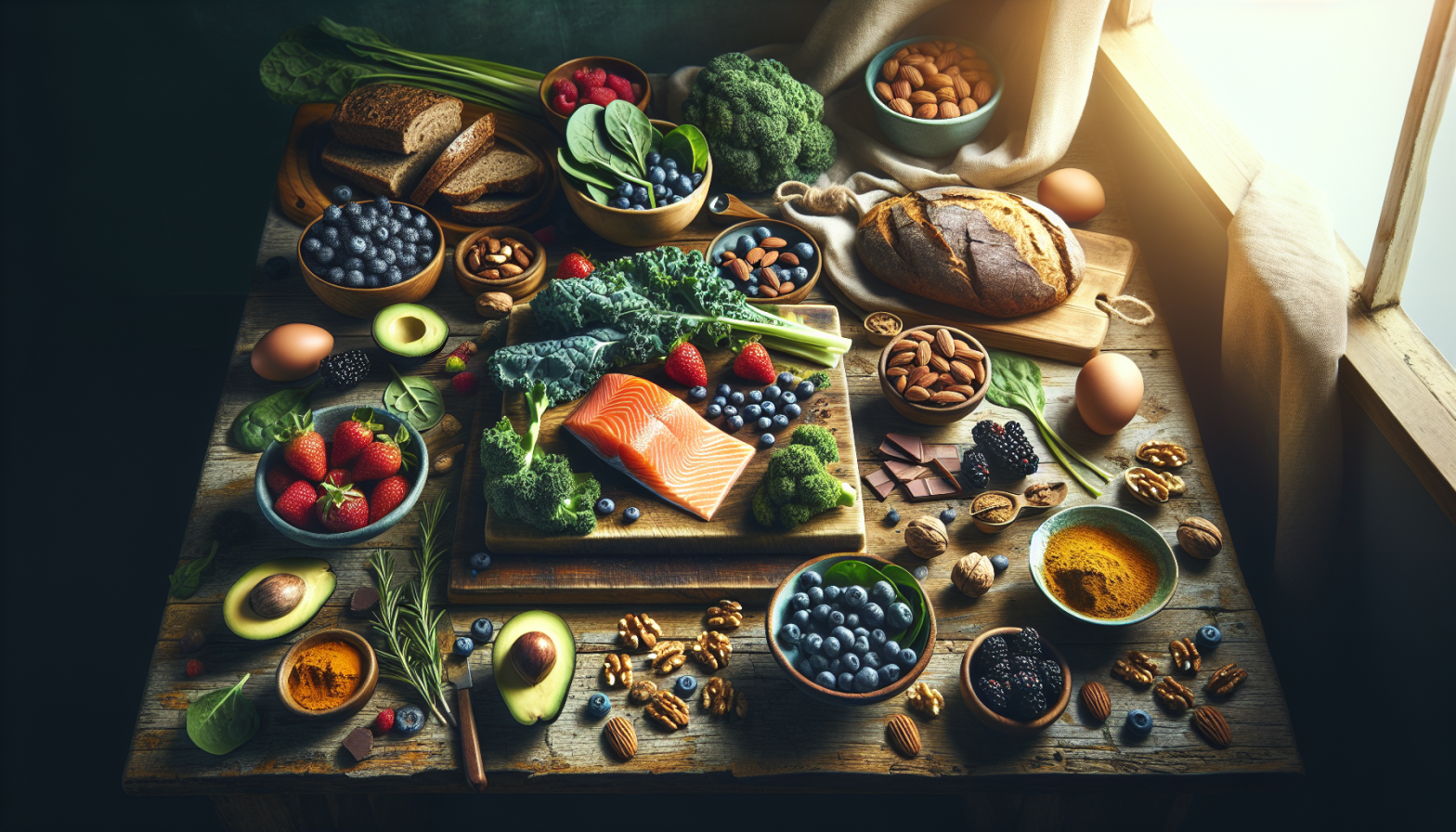We all want to keep our minds sharp as we age, and what we eat plays a crucial role in maintaining brain health. As seniors, we face unique challenges when it comes to cognitive function, making it essential to focus on nutrition that supports our brain. The best foods for brain health can have a significant impact on memory, focus, and overall mental well-being. From fish rich in omega-3s to antioxidant-packed berries, there’s a wide range of brain food options to explore.
In this article, we’ll dive into the top nutrition tips for seniors looking to boost their brain health. We’ll cover the benefits of fatty fish like salmon, the importance of leafy greens, and the power of berries for cognitive function. We’ll also look at how nuts, seeds, whole grains, and eggs can support brain health. Additionally, we’ll explore the potential of foods like avocados, turmeric, and even dark chocolate to keep our minds sharp. By the end, you’ll have a comprehensive guide to nourishing your brain through diet.
Fatty Fish (Salmon)

I’ve found that fatty fish, especially salmon, is one of the best foods for brain health. It’s packed with omega-3 fatty acids, which are essential for maintaining cognitive function as we age. Let’s dive into why salmon is such a powerhouse for our brains.
Salmon brain health benefits
Salmon is rich in DHA, a type of omega-3 that makes up about 40% of the fatty acids in our brain. This nutrient is crucial for preserving cell membrane health and facilitating communication between brain cells. I’ve learned that consuming salmon regularly can improve learning, memory, and overall cognitive well-being. It’s also been linked to a reduced risk of age-related cognitive decline and conditions like Alzheimer’s disease.
Salmon omega-3 content
The omega-3 content in salmon is truly impressive. It’s one of the best sources of EPA and DHA, two types of omega-3s that are critical for brain function. These fatty acids help reduce inflammation in the brain and support the production of neurotransmitters. I’ve read that they can even help alleviate symptoms of depression and improve blood flow to the brain.
Recommended salmon intake for seniors
As a senior, I try to follow the dietary guidelines that recommend eating at least 8 ounces of seafood per week. This translates to about two 4-ounce servings of fish. For optimal brain health, I aim to include salmon in my diet at least twice a week. It’s not just good for my brain – it’s also delicious and versatile in many recipes.
Leafy Green Vegetables
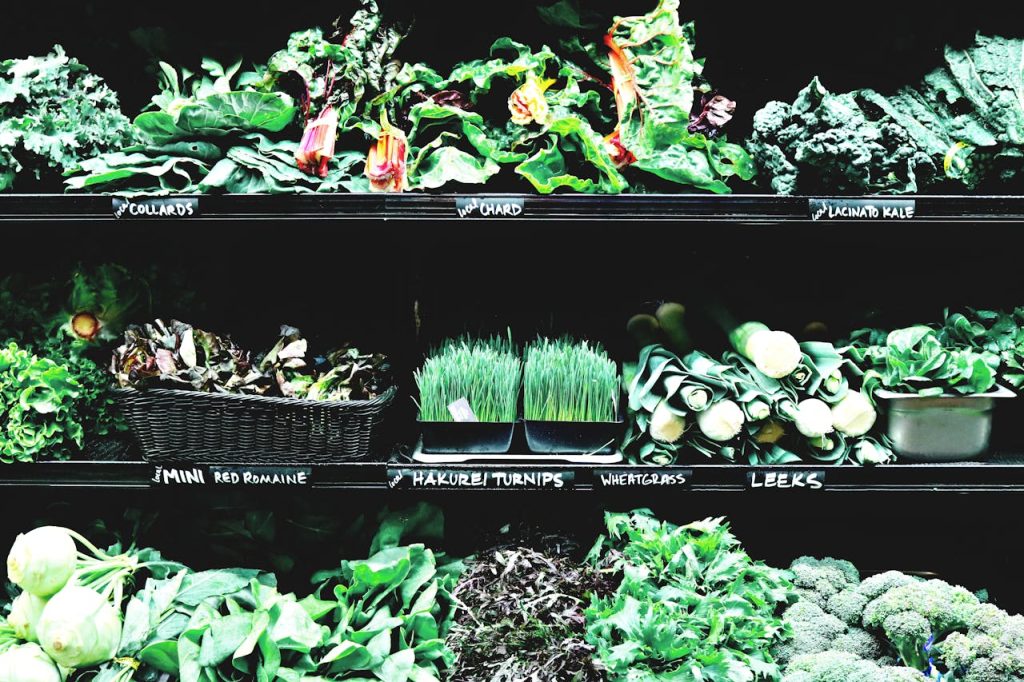
I’ve discovered that leafy green vegetables are like a fountain of youth for our brains. They’re packed with nutrients that help keep our minds sharp as we age. Let’s explore why these greens are so important and how we can add more of them to our diets.
Best leafy greens for brain health
When it comes to brain food, kale and spinach are at the top of my list. Spinach is rich in B vitamins, vitamin E, vitamin K, and folate, which all play a role in improving memory and mental focus. Kale, on the other hand, is loaded with omega-3s, vitamin C, and vitamin A, which are great for brain health. Other brain-boosting greens include collard greens, arugula, and Swiss chard.
Nutrient profile of leafy greens
Leafy greens are nutritional powerhouses. They’re packed with vitamins A, C, E, and K, as well as folate and minerals like iron and calcium. These nutrients have antioxidant and anti-inflammatory properties that protect our brain cells from damage. Some greens also contain lutein, which has been linked to better cognitive function.
How to incorporate more leafy greens
Adding more greens to our diet doesn’t have to be a chore. I love starting my day with a green smoothie – it’s an easy way to get a serving of spinach or kale. For lunch, I often make a big salad with mixed greens. Dinner might include sautéed Swiss chard or kale chips as a side dish. Even adding herbs like basil or parsley to our meals counts towards our daily greens intake.
Berries
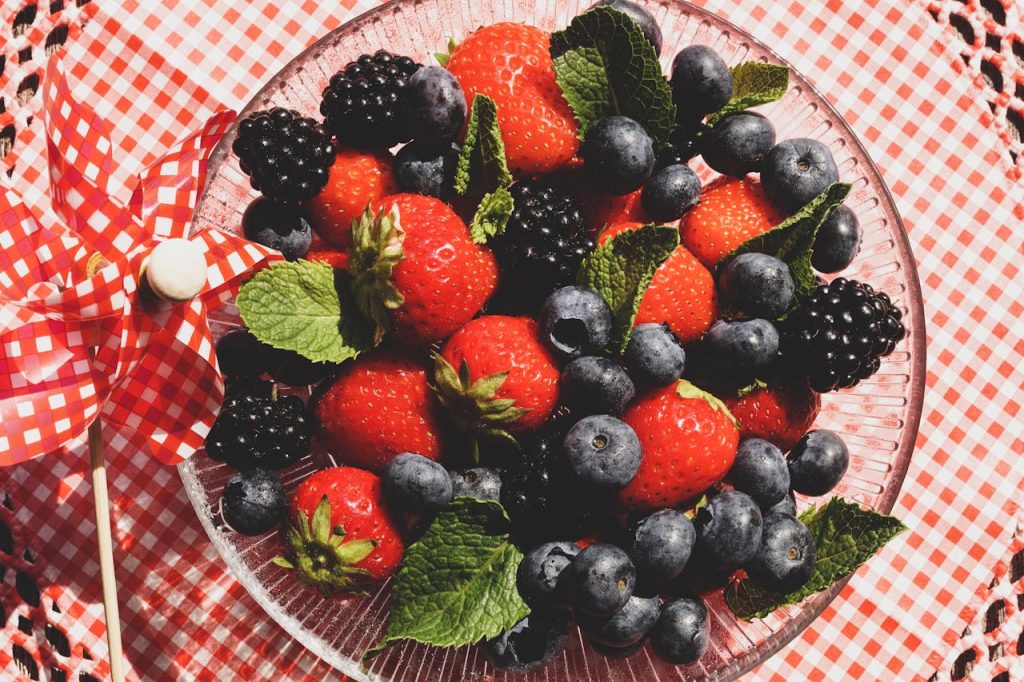
I’ve found that berries are a delicious and powerful addition to my diet for brain health. These colorful fruits are packed with nutrients that support cognitive function and memory.
Top berries for cognitive function
Blueberries, strawberries, and blackberries are among the best foods for brain health. Studies show that eating these berries regularly can improve memory and reduce the risk of cognitive decline. I’ve learned that blueberries, in particular, have been linked to enhanced signaling in brain centers that mediate memory function.
Antioxidants in berries
The secret to berries’ brain-boosting power lies in their high antioxidant content. Anthocyanins, the compounds that give berries their vibrant colors, have potent antioxidant and anti-inflammatory effects. These properties help protect our brain cells from damage and reduce inflammation, which is crucial for maintaining cognitive function as we age.
Ways to enjoy berries daily
To reap the benefits of these brain foods, I try to incorporate berries into my diet in various ways. I love adding a handful of mixed berries to my morning cereal or yogurt. For a refreshing snack, I blend frozen berries into a smoothie. I’ve also discovered that berries make a great topping for salads, adding a burst of flavor and nutrition. By enjoying berries regularly, I’m giving my brain a delicious boost of protective nutrients.
Nuts and Seeds
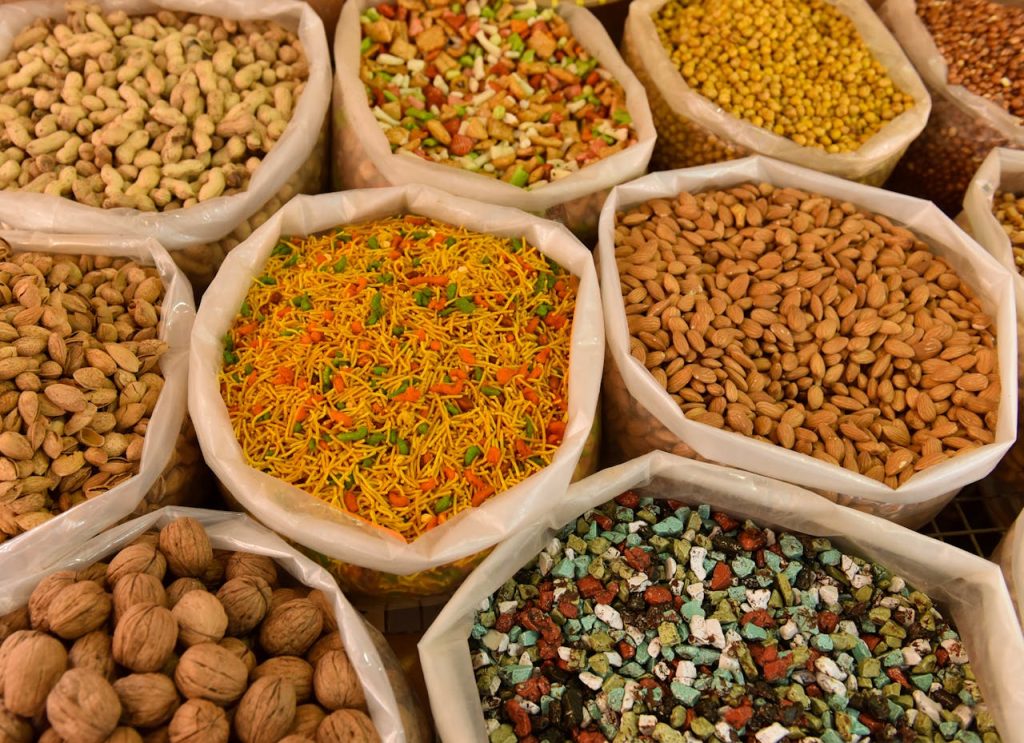
I’ve discovered that nuts and seeds are powerhouses when it comes to brain health. These tiny nutritional gems are packed with essential nutrients that support cognitive function and memory.
Brain-boosting nuts and seeds
Some of the best foods for brain health include walnuts, almonds, cashews, pecans, flax seeds, pumpkin seeds, and sunflower seeds. Walnuts, in particular, are a standout choice. They contain omega-3 fatty acids, which are crucial for maintaining healthy brain cell membranes. Almonds are rich in vitamin E and L-carnitine, which may help improve memory by reducing neuronal degeneration.
Healthy fats and protein content
Nuts and seeds are excellent sources of healthy fats and protein. These nutrients are essential for brain function and overall health. The monounsaturated and polyunsaturated fats found in nuts and seeds help reduce inflammation in the brain, which is linked to better cognitive function. Additionally, the protein content in nuts and seeds provides the building blocks for neurotransmitters, which are vital for brain communication.
Proper portion sizes for seniors
While nuts and seeds are nutritious, it’s important to consume them in moderation. As a senior, I aim to include about 1 ounce (or a small handful) of mixed nuts and seeds in my daily diet. This serving size provides a good balance of nutrients without excessive calories. By incorporating these brain-boosting foods into my meals, I’m giving my cognitive health a delicious and nutritious boost.
Whole Grains
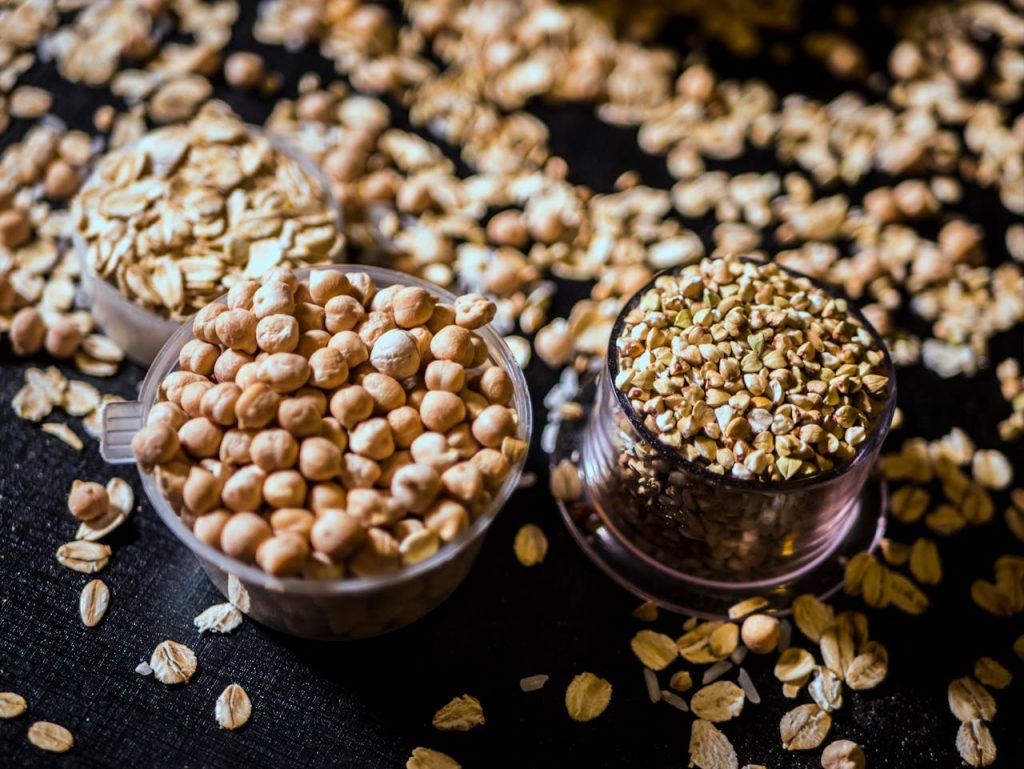
I’ve found that whole grains are among the best foods for brain health. They’re packed with nutrients that support cognitive function and provide a steady source of energy for our minds.
Best whole grains for brain health
Some of the top brain-boosting whole grains include oats, quinoa, and brown rice. Oats are rich in B vitamins and antioxidants, which help enhance memory and sharpen brain function. Quinoa is a powerhouse of complex carbohydrates, essential for fueling our brains. Brown rice is full of B vitamins that aid in creating new memories and learning.
Fiber and B-vitamin benefits
The fiber in whole grains helps regulate blood sugar levels, which is crucial for maintaining stable energy and mood throughout the day. B vitamins, abundant in whole grains, play a vital role in brain health by supporting the production of neurotransmitters and reducing inflammation in the brain.
Easy whole grain swaps for seniors
As a senior, I’ve found it simple to incorporate more whole grains into my diet. I’ve swapped white bread for whole-wheat varieties and replaced white rice with brown or wild rice. For breakfast, I enjoy whole-grain cereals or oatmeal instead of refined options. These small changes have made a big difference in my overall health and cognitive function.
Eggs

I’ve discovered that eggs are one of the best foods for brain health. They’re packed with nutrients that support cognitive function and memory.
Egg nutrition for brain health
Eggs are rich in B vitamins, particularly B6 and B12, which are crucial for brain health. These vitamins help reduce the risk of cognitive decline and may slow the progression of mental decline in older adults. Eggs also contain antioxidants like lutein, which has been linked to better cognition across different domains, including memory and learning.
Choline content in eggs
One of the most important brain-boosting nutrients in eggs is choline. Egg yolks are among the most concentrated sources of this essential nutrient. Choline plays a vital role in brain and spinal cord development and is linked to improved cognitive function in older adults. It’s a precursor to acetylcholine, a neurotransmitter that helps brain cells communicate with each other. Studies have shown that choline supplementation can improve performance on tasks related to processing speed, working memory, and visuomotor skills.
Creative ways to include eggs in senior diets
As a senior, I’ve found several ways to incorporate eggs into my diet. I enjoy making vegetable frittatas, which are a great way to use up leftover vegetables and eggs. Hard-boiled eggs make for an easy, nutritious snack. For a twist on traditional breakfast, I sometimes bake an egg inside a hollowed-out tomato with a sprinkle of cheese. This simple dish is both delicious and brain-healthy.
Avocados
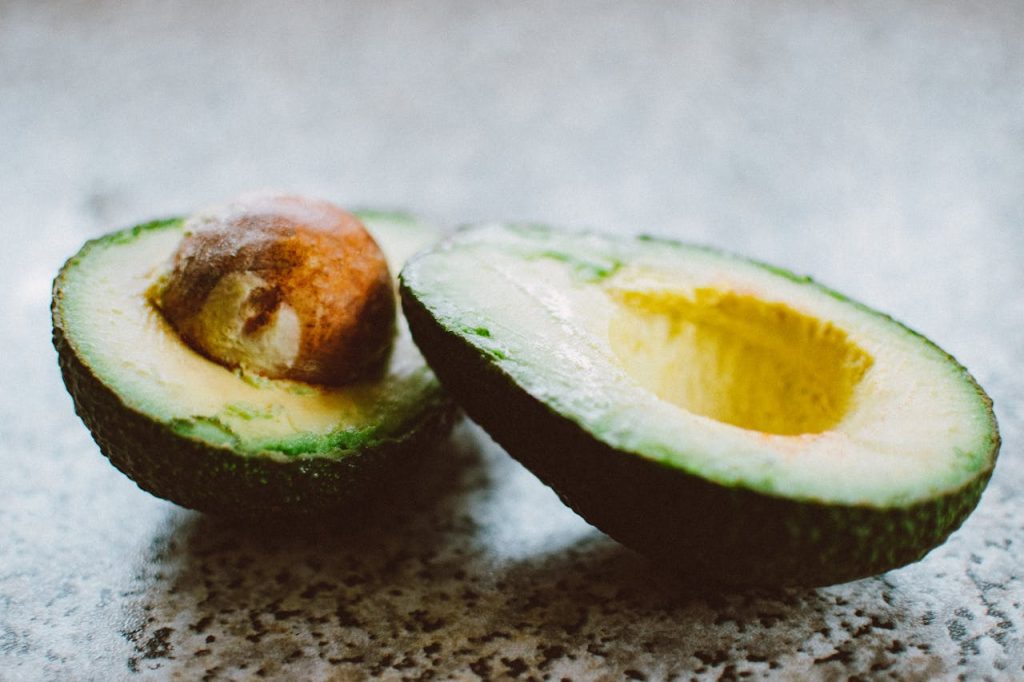
I’ve discovered that avocados are one of the best foods for brain health. These creamy fruits are packed with nutrients that support cognitive function and memory.
Avocado’s brain-protective properties
Avocados contain monounsaturated fatty acids (MUFA) that have been shown to improve global cognitive performance and prevent cognitive decline. They’re also rich in antioxidants like lutein and zeaxanthin, which may enhance brain function. Studies have found that older adults who consume avocados score higher on cognitive tests, even after accounting for other variables.
Healthy fats in avocados
The high content of monounsaturated fats in avocados makes them an excellent food for brain health. These healthy fats help reduce inflammation and protect against heart disease risks. Avocados also contain omega-3 fatty acids, which are crucial for maintaining cognitive function as we age. The fat in avocados aids in the absorption of fat-soluble vitamins and nutrients, further supporting overall brain health.
Incorporating avocados into meals
To reap the brain-boosting benefits of avocados, I try to include them in my diet regularly. I love adding mashed avocado to toast for a nutritious breakfast. For lunch, I often incorporate sliced avocado into salads or sandwiches. Guacamole makes a great snack when paired with whole-grain crackers or vegetable sticks. By enjoying avocados in various ways, I’m giving my brain a delicious and nutritious boost.
Turmeric
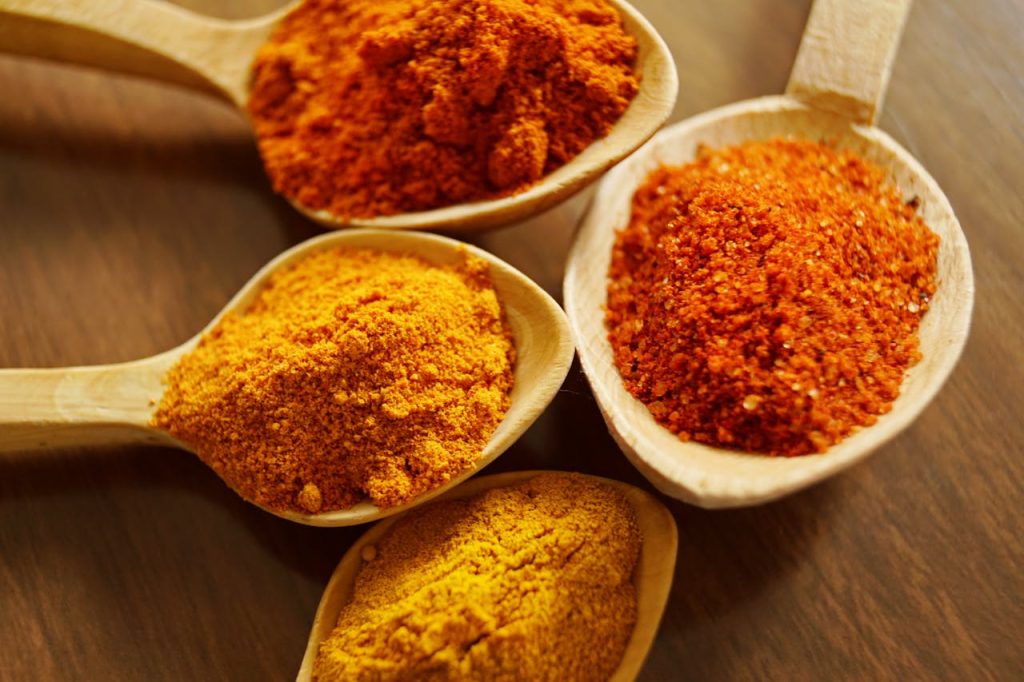
I’ve discovered that turmeric is one of the best foods for brain health. This golden spice, commonly used in curry dishes, contains a powerful compound called curcumin. Curcumin has impressive anti-inflammatory and antioxidant properties that can benefit our brains as we age.
Curcumin benefits for brain health
Curcumin has shown promise in improving cognitive function and memory. Studies suggest it may help reduce the risk of age-related cognitive decline and even Alzheimer’s disease. I’ve learned that curcumin can cross the blood-brain barrier, potentially reducing inflammation and oxidative stress in the brain.
How to use turmeric in cooking
I love incorporating turmeric into my meals. I often add a pinch to scrambled eggs or roasted vegetables for a flavor boost. It’s also great in soups, stews, and rice dishes. To enhance absorption, I always pair turmeric with black pepper and a source of healthy fat, like olive oil or avocado.
Turmeric supplements for seniors
For those who don’t enjoy the taste of turmeric, supplements are an option. However, it’s crucial to consult with a healthcare provider before starting any new supplement regimen. Some curcumin supplements are formulated for better absorption, which can be beneficial for seniors looking to support their brain health through nutrition.
Dark Chocolate
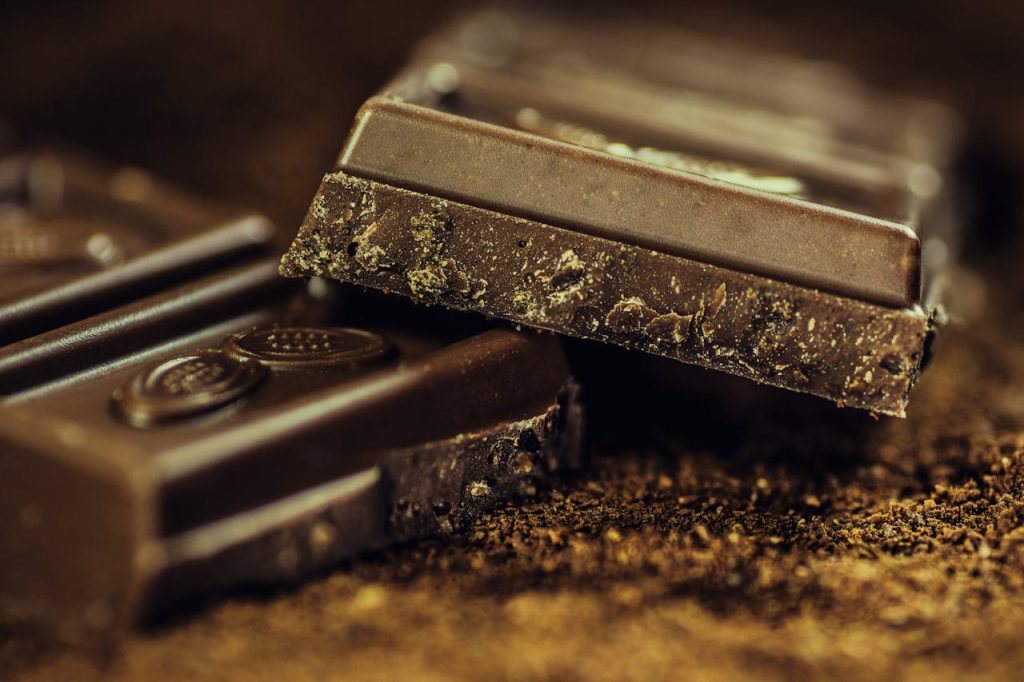
I’ve discovered that dark chocolate is one of the best foods for brain health. It’s packed with cocoa flavonoids that have impressive cognitive benefits. These compounds have a positive impact on our brain function, especially when it comes to memory and processing speed.
Cocoa flavonoids and cognition
Studies show that cocoa flavonoids can improve various aspects of cognitive performance. They enhance working memory, attention, and executive function. I’ve learned that these benefits are particularly noticeable in older adults, but even young people can experience improvements in their cognitive abilities after consuming dark chocolate.
Recommended dark chocolate intake
To reap the brain-boosting benefits, I aim to consume dark chocolate with at least 70% cocoa content. A typical serving size is about 1 to 2 ounces (28-56 grams) per day. It’s important to choose high-quality dark chocolate and be mindful of portion sizes to avoid excessive calorie intake.
Healthy ways to enjoy dark chocolate
I love incorporating dark chocolate into my diet in various ways. Sometimes, I’ll have a small square as a midday snack. Other times, I’ll grate some over my morning oatmeal or add it to a smoothie for a delicious brain food boost. Dark chocolate can also be a great addition to trail mix or used as a topping for fresh berries.
Conclusion
The exploration of brain-boosting foods reveals a wealth of options to support cognitive health as we age. From the omega-3 rich fatty fish to the antioxidant-packed berries and leafy greens, each food group has a unique contribution to brain function. The inclusion of nuts, whole grains, and eggs in our diet provides essential nutrients that have an impact on memory and mental clarity. What’s more, incorporating avocados, turmeric, and dark chocolate into our meals not only adds flavor but also offers cognitive benefits.
To wrap up, the key to maintaining brain health lies in a varied and balanced diet that includes these nutrient-dense foods. By making mindful choices in our daily meals, we can give our brains the nourishment they need to stay sharp and resilient. Remember, small dietary changes can lead to significant improvements in cognitive function over time. So, let’s embrace these brain-friendly foods to support our mental well-being and enjoy a vibrant, mentally active lifestyle as we age.
FAQs
What are the most beneficial foods for brain health in older adults? The top foods that enhance brain function in seniors include salmon, which is high in omega-3 fatty acids, leafy greens, coffee, dark berries, nuts, avocados, Greek yogurt, and cruciferous vegetables. These foods are known for supporting healthy brain functions.
Can you list three foods that enhance brain function? Berries, fatty fish, and coffee are three foods known to improve memory, concentration, and overall brain health. Berries, such as strawberries and blueberries, have been linked to the prevention of Alzheimer’s disease and cognitive decline. Fatty fish are rich in omega-3 fatty acids which are crucial for brain health.
What are effective ways to enhance brain health in the elderly? Improving brain health in older age can be achieved by maintaining physical health, managing high blood pressure, eating nutritious foods, staying physically active, engaging the mind in various activities, participating in social events, addressing both physical and mental health issues, and understanding the effects of medications on the brain.
Which food is considered the ultimate brain enhancer? Leafy green vegetables are considered the top brain food. Greens like kale, spinach, and broccoli are loaded with vitamins and nutrients such as vitamin K, lutein, folate, and beta carotene, which are essential for maintaining brain health.
